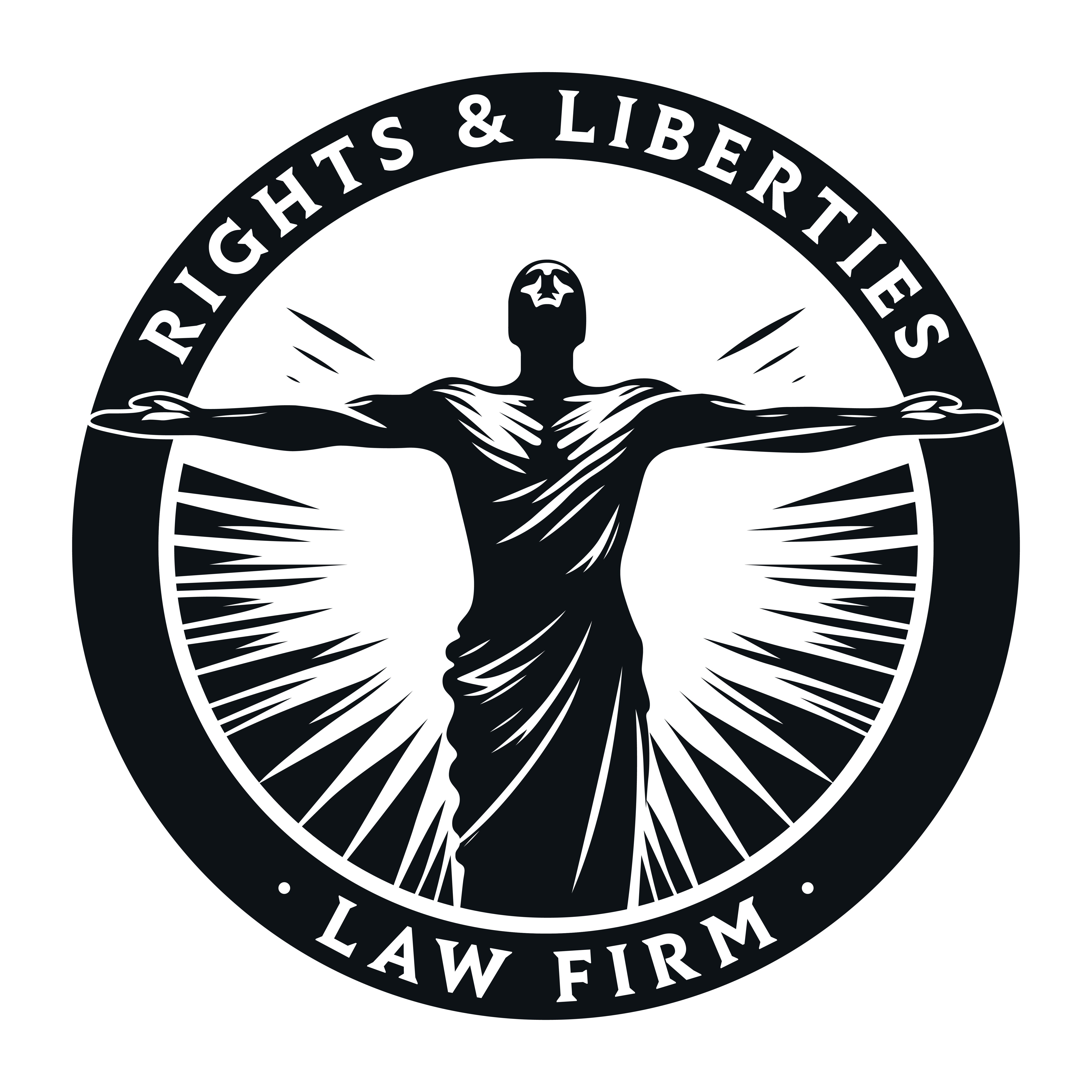Free Speech, Assembly, and Right to Protest Violations in Colorado
What is the right to free speech, assembly, and protest in Colorado?
In Colorado, the right to freedom of speech, assembly, and protest are protected by both the First Amendment to the United States Constitution and Art. II Section 7 of the Colorado State Constitution.

The First Amendment to the United States Constitution states:
“Congress shall make no law respecting an establishment of religion, or prohibiting the free exercise thereof; or abridging the freedom of speech, or of the press; or the right of the people peaceably to assemble, and to petition the Government for a redress of grievances.”
This means that you have the right to express your opinions, assemble peacefully, and protest without fear of government interference.
In addition to the federal constitutional right to freedom of speech, assembly, and protest, the Colorado State Constitution further safeguards these fundamental rights. Article II, Section 7 of the Colorado Constitution states:
“Every person shall be free to speak, write or publish whatever he will on any subject, being responsible for all abuse of that liberty; and in all suits and prosecutions for libel the truth thereof may be given in evidence, and the jury, under the direction of the court, shall determine the law and the fact.”
This constitutional article reinforces your right to free speech, assembly, and protest at the state level, ensuring that Coloradans can voice their opinions and concerns freely.
What is a free speech violation in Colorado?
A First Amendment free speech, assembly, or protest civil rights violation occurs when a government officer such as a police officer or an individual acting on behalf of the government, infringes upon your rights to express your opinions, assemble peacefully, or protest. This could include actions such as unjustified censorship, wrongful arrest during peaceful protests, excessive force against a protester, or retaliation for engaging in free speech activities or expressing one’s views.
42 U.S.C. § 1983, also known as the Civil Rights Act of 1871, allows individuals to sue government officials, including police officers, who have violated their constitutional right to free speech, assemble peacefully, or protest.
Similarly, C.R.S. § 13-21-131, Colorado’s state civil rights statute, provides protections against unlawful actions by law enforcement that infringe upon your constitutional rights. This law allows individuals to seek compensation if their rights under the Colorado Constitution, including the right to free speech, assembly, and protest, have been violated.

Common situations where free speech violations may arise
- Censorship in Schools and Universities: This can occur when educational institutions restrict student speech or academic freedom.
- Government Retaliation: This can happen when a government official or entity retaliates against an individual for their speech.
- Restrictions on Protests: This includes situations where the government imposes unreasonable restrictions on the time, place, or manner of protests.
- Prior Restraints: This refers to situations where the government prevents speech or expression before it takes place.
- Internet Censorship: This can occur when governments or private entities restrict access to or content on the internet.
- Gag Orders: These are court orders that prohibit individuals from speaking about certain topics or cases.
- Restrictions on Press Freedom: This includes situations where journalists are restricted in their reporting or are punished for their coverage.
- Compelled Speech: This refers to situations where the government forces individuals to express certain views.
- Censorship of Artistic Expression: This can occur when governments or private entities restrict artistic expression due to its content or message.
- Employment Retaliation: This can happen when an employer retaliates against an employee for their speech, especially if it’s of public concern.
- Arguments or disputes with police officers: Sometimes police officers are thinned skinned and abuse their authority by charging people who ask questions or are critical of an officer during a police encounter with a crime.
- Filming police officers: In Colorado you have a constitutional right to film police officers so long as you do not actively interfere with an investigation or arrest. When a police officer arrests you for merely exercising your right to film an officer, your First Amendment rights may have been violated.
- Retaliation for engaging in free speech online: This can occur when a person posts something on the internet or social media that is critical of government or public figures and that person is charged with a crime or censored for engaging in speech.
Proving a free speech violation civil rights case in Colorado
In a free speech violation case, the plaintiff must prove by the preponderance of the evidence each element of the free speech violation that
- The Defendant is a “Peace Officer” or government official (acting under color of law);
- Plaintiff was engaged in protected [speech/political protest/peaceful assembly], an activity protected by [the First Amendment to the United States Constitution/Article II, section 10 of the Colorado Constitution];
- Defendant’s actions, [subjecting Plaintiff to an unlawful detention/arrest/search/excessive force] caused Plaintiff to suffer an injury that would reasonably have a chilling effect on a person of ordinary firmness in the person’s exercise of the right of [free speech/peaceful assembly/protest/free association].
- Defendant’s actions were substantially motivated as a response to Plaintiff’s exercise of constitutionally protected conduct.
- Defendant’s actions caused Plaintiff substantial harm and were a proximate cause of Plaintiff’s damages.
If the jury finds that all the elements of First Amendment violation have been proved, then the verdict must be for the plaintiff.
What is the statute of limitations for a free speech violation civil rights claim in Colorado?
The statute of limitations for civil rights suits in Colorado brought under 42 U.S.C. § 1983 or C.R.S. § 13-21-131 is two years from the time a cause of action accrues. Free speech violation civil rights claims arising out of police actions toward a citizen are presumed to have accrued when the actions actually occurred.
Contact Denver’s trusted free speech attorney to find out if you have a viable free speech violation case
Free speech violation cases are often complex as they require an in depth understanding of the Constitution and First Amendment and free speech related jurisprudence. When the police or government officers have violated a person’s right to free speech, peaceful assembly, or engage in political protest, the individual can experience a wide array of harms including embarrassment, loss of reputation, lost property, and if also arrested, lost income, lost housing, job termination, lost medical care, and wrongful incarceration. Free speech violation cases require thorough investigation and steadfast advocacy to prevail in court. A skilled free speech attorney can help you hold the police officers who violated your free speech rights accountable.
To know whether or not you have a viable free speech violation case, the first step is to contact Rights & Liberties Law Firm to start your free police misconduct civil rights case evaluation. If your rights have been violated and your liberties trampled by a cop who tried to silence you or retaliate against you for speaking your voice, the attorneys at Rights & Liberties Law Firm are here to fight for you and get you the justice and compensation you deserve.
Three-Step Path to Civil Rights Representation
Step one. If you’ve been the victim of police brutality or a government officer has
violated your or a loved one’s rights, complete our Free Civil Rights Case Evaluation.
Confidentially upload videos, photos, and other documents of evidentiary value directly
to our civil rights case evaluation portal and start the process of holding those who abuse
their powers accountable for violating your rights. Civil rights cases rise and fall on the
facts of the case. Our Free Civil Rights Case Evaluation is designed to gather the
information necessary to determine if you have a case where we can vindicate your rights
and get you the justice and compensation you deserve. Be sure to answer each question
in our Free Civil Rights Case Evaluation in a detailed and clear manner.
Step two. Our team will evaluate your case. If we need additional information from you
to complete your case evaluation we will contact you. Once we’ve completed your case
evaluation, we will promptly contact you to let you know if we can help you with your
case. If so we’ll schedule a consultation to learn more about your story.
Step three. During our consultation we’ll determine if there’s a viable path to vindicate
your rights. If there is, and you’re ready to hold those accountable who violated your
rights, we’ll provide you with a contingency fee agreement to review and sign. Then the
fight is on. You pay nothing until we’re victorious.
